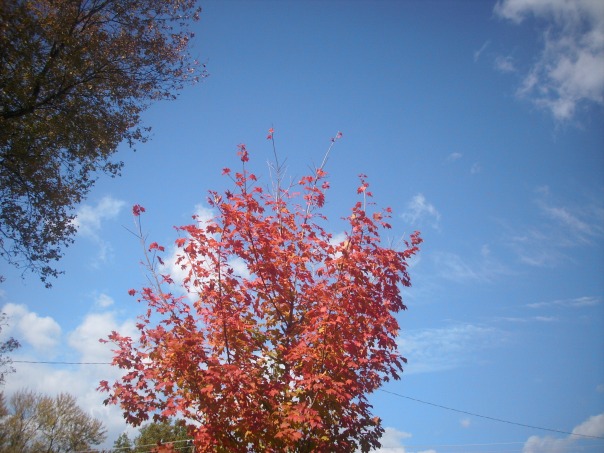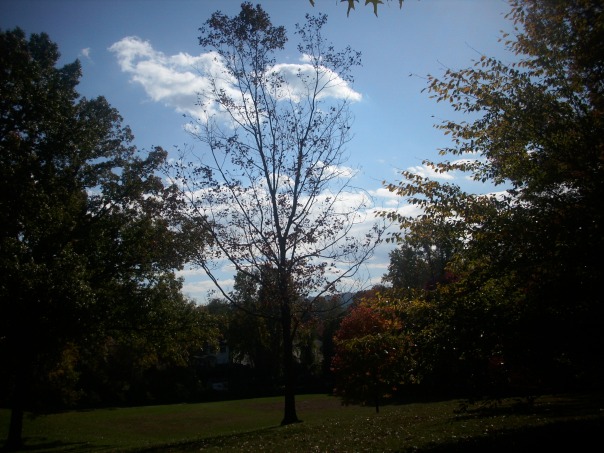 Every time I see those circular wounds in a tree where a branch was sawed off, I wince. I think of the brutal cut of the metal teeth; I think of the sorrowful sap bleeding. I see those holes as scars telling the story of the tree’s life, where it was hacked and hurt, how we all carry these places where a part of us was cut down for someone else’s purpose, by someone else’s idea of how our behavior or our journey should take shape.
Every time I see those circular wounds in a tree where a branch was sawed off, I wince. I think of the brutal cut of the metal teeth; I think of the sorrowful sap bleeding. I see those holes as scars telling the story of the tree’s life, where it was hacked and hurt, how we all carry these places where a part of us was cut down for someone else’s purpose, by someone else’s idea of how our behavior or our journey should take shape.
I don’t take kindly to all this human intervention on the growth of a tree. It seems unnatural, an unnecessary interference. Most gardening activities seem so, to me – human effort forcing nature to cohere to an alien form. We snip at the bonsai constantly cutting it to conform to our whims. We fulfill our inner needs for control and order by weeding and bedding and mulching and seeding, digging up bulbs and turning them into refugees from their original dirt, committing genocide against species of boxwoods that don’t meet the criteria for our yard’s border.
Today, though, walking along the line of grey, de-limbed maples, I thought about how pruning can keep a plant healthy, and how, at least as a metaphor, the exercise of making choices, while painful, is necessary for a person’s character and talent to flourish.
Pruning Examples
My son buds forth a tendril tendency to whine, and I whittle at that shoot, so that it doesn’t stick around and turn into a main branch of his personality. It is not unpainful to detach.
My daughter expresses interest in talent in a variety of hobbies, from reading to dance to singing to acting to art to fashion to animals to science to activism. I help her focus on a few of these, so she can spend time and effort honing her skills, and it may hurt to give up as much time with the ones she decides are not her favorites.
In my own self, I realize that I have fallen into a pattern of resentment that I’d rather deny existed. It takes a lot of energy to uproot this very deep tendency. It doesn’t happen quickly. Even after the first extraction, I find it growing back, I didn’t get all of it. Part of me feels like I need that resentment, to hold me in place. I have to carefully watch for its return.
In the Garden
What we care for, water, attend to, feed grows. What we ignore dies. What we lop off might be missed. What we intend to escape might return. But we are always making those choices, even if we don’t realize it. We are always in the garden, and whether we actively pick up tools to consciously play a role in what survives or not, we are ultimately still responsible for what happens. If we let the weeds take over and choke all the gorgeous blooms out, if we let the invasive species crowd out the sun for the grass, the resulting landscape of dirt and stone devoid of beauty is our own doing.
The Middle Way (wu-wei)
There’s the Taoist middle road, of course, in how one approaches both personal and botanical growth. All child-raising and self-improvement does not have to take the extreme form of straight-jacket emotionally rigid attempts to make a person be something she is not and do things she does not like or have the propensity to perform.
And all gardening does not have to look like the operations of deforestation, intense logging, damaging farming practices, staid Victorian gardens. Caring for the survival and health of beautiful flowers and fruitful trees has its place, and can be more about clearing the space for what is naturally occurring to find abundance.
Natural is Not Always Good
I get really annoyed when people fall into the idea that “natural” is a value in and of itself. I mean, usually that is the case – your natural hair color is usually preferable to a dyed hot mess, for instance.
But in our pseudo-Buddhist tendencies (seen on Facebook posts that say things like, “Maybe we’re not supposed to learn so much as unlearn things to get to who we were originally”) we subscribe to the notion that growth, learning, thinking, etc. move us away from our infant-state of supposed wisdom, purity, godliness. We see babies as perfect beings who then fall from grace when they grow up and we fill them with education and information and ideas and they learn to think.
Babies may be perfect, but then, we all are. Because what makes a baby perfect isn’t anything but the fact that a baby just IS not much of anything, undeveloped, unrealized, just starting, and unable to survive on its own, babbling not talking… It may be true that we grow away from our childhood pastimes of playfulness and openness and body-feelings. But you know, that is not always bad. We do learn, and unlearn, and learn again, but that is okay. It’s ok to grow up and not play all the time. It’s ok to learn to think about other people. To learn to share. To learn how to articulate an argument, analyze a premise. These are not innate or natural practices. Loving others is something you learn.
A baby is not a Buddha. A buddha goes through a lot of learning to get to the place where he can be enlightened. The emptiness advocated by Buddhism is not born into. It can only be achieved in relationship to fullness. And it does not mean the absence of brain cells, cognition, intelligence.
A baby is perfect, you are perfect, inherently valuable, alive, significant, part of the whole. You make mistakes, you make terrible choices, you screw things up, but that is what learning is, that is what we do, we experience and learn, that is who we are, in pain and suffering and join, learning to trim away, wisely, to allow our hearts to grow as big as possible, with nothing in the way.

